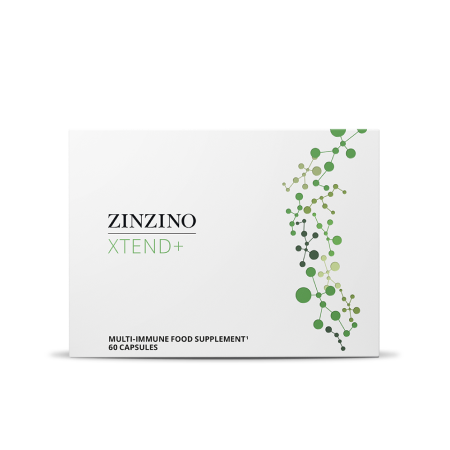Tina Fried
Zinzino Independent Partner
Welcome! I'm your independent consultant, here to guide you on your health journey. Let me know what you need!
Why are vitamins & minerals so important and essential for good health?

Eating a balanced diet is the best way to capture the necessary vitamins and minerals. But given the broad mix of essential nutrients and the varying diets in modern lifestyle, consuming enough vitamins and minerals through food alone isn’t always possible.
To know what might need to be supplemented, it’s best to understand the role of micronutrients in the body and the benefits of vitamins and minerals.
What is the purpose of vitamins and minerals in the human body?
Why do we need vitamins and minerals? The body requires them to stay healthy and strong. From converting energy and cellular repair to wound healing and immune support, micronutrients help power the body.
With the long list of vitamins and minerals, it’s difficult to make conscious food choices that garner the perfect micronutrient mix. It’s also important to know that many interact, both improving and blocking absorption, so understanding this delicate interplay is important.
Vitamins are organic and can be broken down by heat, air or acid. They’re categorized into water and fat-soluble vitamins. Minerals, on the other hand, are inorganic and retain their chemical structure. This is why minerals in soil and water are best delivered to the body through plants, fish, animals and fluid.
Benefits of water-soluble vitamins and minerals
Found in the watery part of food, water-soluble vitamins help release and produce energy, build proteins and cells and make collagen. These micronutrients include Vitamin C and the group of B vitamins:
- Biotin (vitamin B7)
- Folic acid (folate, vitamin B9)
- Niacin (vitamin B3)
- Pantothenic acid (vitamin B5)
- Riboflavin (vitamin B2)
- Thiamin (vitamin B1)
- Vitamin B6 & B12.
What do major & trace minerals do in the body?
The body is a house for major minerals that balance water and salt levels in the body and many other important functions. These minerals include calcium, chloride, magnesium, phosphorus, potassium, sodium and sulfur.
Equally important, trace minerals perform vital jobs in the body. However, they do interact with one another, so ‘the more the better’ approach isn’t a good strategy. These trace minerals are chromium, copper, iodine, iron, manganese, molybdenum, selenium and zinc.
Why do we need fat-soluble vitamins?
Fat-soluble vitamins are most abundant in high-fat foods and are much better absorbed into your bloodstream when you eat them with fat. The vitamins are used for bodily functions, as well as stored to tap into when low. These vitamins are best explained as time-release micronutrients: Vitamin A, D, E, and K.
What foods have minerals and vitamins? And how much does the body need?
It’s useful to have a daily intake suggestion for each vitamin and mineral. For food ideas for each micronutrient, take time to research each one. Start by putting this information on the fridge.
Vitamin D is found in fatty fish, egg yolks, and fortified foods such as cereal.
Magnesium is primarily sourced from pumpkin, spinach, beans, tofu, brown rice, and nuts.
Calcium comes from milk, cheese, yogurt, broccoli, kale, nuts, beans, lentils, and fortified cereals.
Zinc-rich foods include oysters, grass-fed beef, pumpkin seeds, spinach, brown rice, and tempeh.
Vitamin B12 sources are animal-based such as meat, fish, poultry, and eggs.
Let the Xtend+ food supplement give you a leg up
While attaining the perfect amount of all the vitamins and minerals can feel overwhelming, there are supplements that help make this possible. Instead of eating upwards of 3,000 calories, Xtend+ is an all-in-one, natural multi-immune food supplement that delivers 22 essential micronutrients, as well as purified 1-3, 1-6 beta glucans derived from baker’s yeast, in easy-to-consume plant-based capsules.
With all the essential vitamins and minerals in four daily Xtend+ capsules, you can perfectly complement a wholesome diet*.
* These statements have not been evaluated by the Food and Drug Administration. This product is not intended to diagnose, treat, cure, or prevent any disease.


Share this page
Or copy link